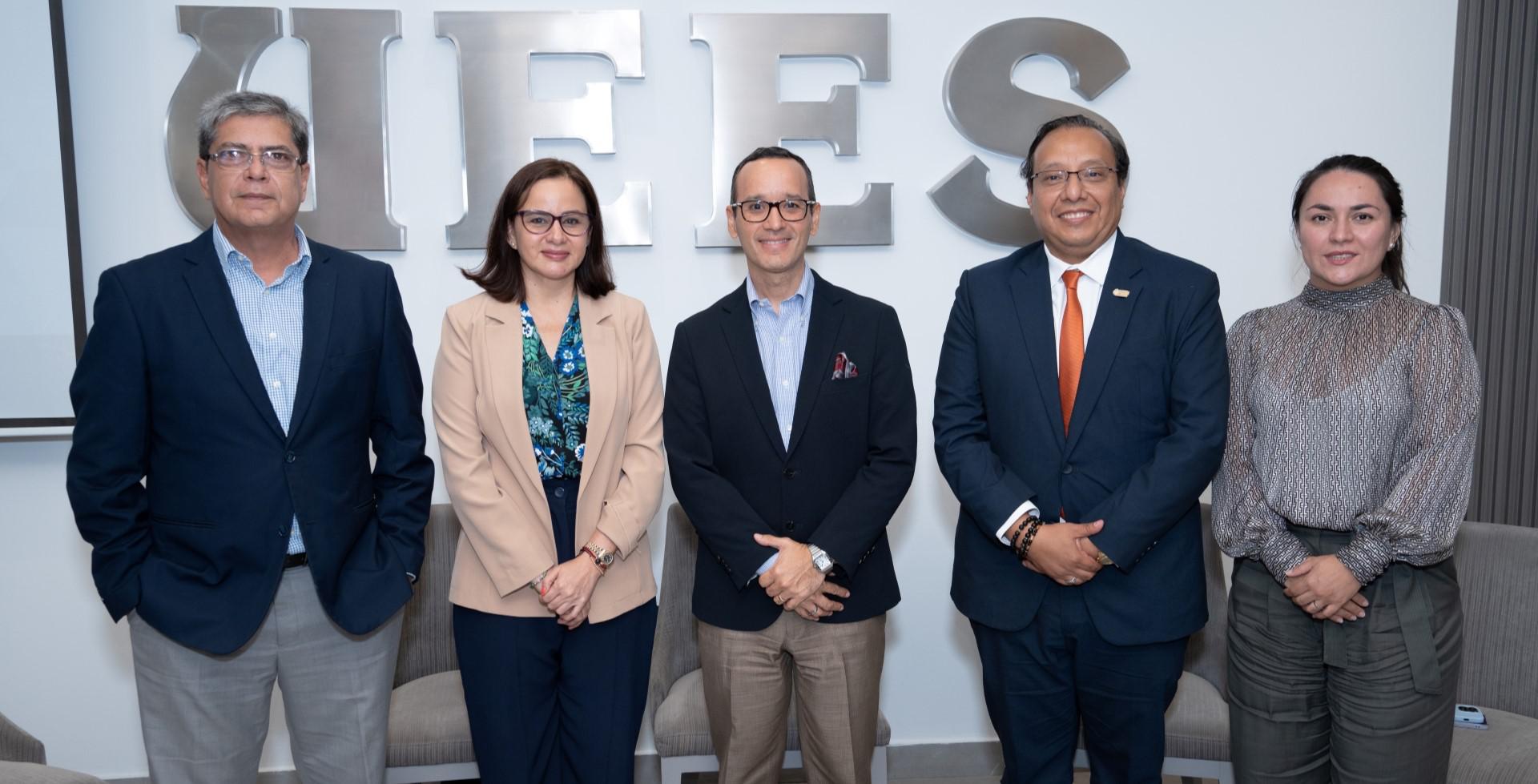Coordination of actors and projects: keys to achieving social sustainability
2025-10-22Samborondón, October 2025.- The “Sustainable Communities” panel was held in the Galo García auditorium at the University of Espíritu Santo, broadcast live on YouTube and organized by the Steps with Future business alliance, made up of Reybanpac, Grupo Difare, Unilever, and Veolia. The event brought together business leaders and NGO representatives to discuss the challenges and opportunities of sustainability in Ecuador, with a special emphasis on the social and community dimensions.
Sustainability: Beyond the environment
The panel began with a reflection on the evolution of international agreements on environmental issues. However, the experts agreed that sustainability must be addressed in a comprehensive manner, including the social and economic dimensions, and not be limited solely to the environmental aspect.
Vivianne Almeida highlighted the transformative role of education and training for children and young people as agents of change: “In today's world, it is essential to develop in them the so-called soft skills—which are actually essential—because that is what companies are looking for: people with emotional skills and competencies; and also green skills, which enable those who acquire them to develop sustainable solutions in different economic sectors.” She gave the example of a program developed by Grupo Difare, the United Nations Refugee Agency, and Humboldt Zentrum "to train the local population and refugees as pharmaceutical retail assistants.
We have achieved employability in vulnerable sectors, but more importantly, these people who have been trained and are working in the DIFARE group or in other companies because they have an international certificate issued by the German Chamber of Commerce have an ethical awareness that is related to the issue of well-being."
Social impact and business partnerships
Leonardo Viteri shared Reybanpac's experience in integrating sustainability into its management model, focusing on social issues such as rural education and the well-being of communities near its agricultural operations: "Thirty-two years ago, Mr. Segundo Wong, our founder, identified a structural problem: there was a deficit in educational services. And that's where the Wong Foundation began to do its bit.“ Regarding the rural context, Viteri added: ”Thirty percent of rural schools lack basic facilities, 35% of rural students do not have access to the internet, 14% of rural adolescents do not attend school, 24% of young people between the ages of 18 and 29 neither work nor study, 79% of rural students do not have access to higher education, and the average age of an agricultural worker today is 50. This is a major concern for us in the provinces of Los Ríos and Santo Domingo.“ Viteri highlighted the ‘Agrofuturo’ initiative among the actions implemented: ”We have trained technical assistants in banana and dairy farming, and we have launched a technical agricultural high school program that links the skills required for employability or entrepreneurship in the area."
Federico Recalde, from the Diakonía Food Bank, highlighted the importance of food and nutrition as the basis for social and educational development: “Hunger is the cause of many bad things, but also many good things, because someone who is well fed can develop better in all aspects, in education and then in work.” Regarding the impact of his programs, Recalde noted: “In Durán, we have managed to have an impact such that 98% of the population that goes to the soup kitchens has overcome anemia, which is a very common problem. But there are also happy stories and changes, because if a child learns something, they will teach it to their parents, and they will continue to grow and change their philosophy.”
Lorena Luna, from Veolia, emphasized the positive impact of providing basic services such as drinking water and sanitation on the quality of life of rural and urban populations: "Guayaquil has over 98% drinking water coverage and around 93% sanitation coverage, but in rural areas such as Progreso, Tenguel, and Puná, we still can't talk about coverage levels above 70%... This also affects the way in which they can have better control over safe food, washing what they consume, their bathrooms, and sanitation. In other words, it is difficult to separate quality of life from access to these services."
Education, nutrition, and partnerships: Keys to sustainability
The panel concluded that sustainability must be mainstreamed across all human projects and activities, and that comprehensive education, adequate nutrition, and partnerships between businesses, academia, and civil society are essential to achieving more resilient and sustainable communities.
Vivianne Almeida summed it up this way: "Sustainability has to be cross-cutting, it has to be in everything, it has to be an inherent part of our DNA so that there can truly be ownership and transformation... when a child or young person is an agent of change and is the one who will understand better... 70% of young people who have had training or who have experienced a sustainability project, understanding the purpose, have then generated, incorporated at least one habit of responsible consumption, ethical management, talking to their community and being an agent of change, because they manage to live it."
About the Steps with Future alliance
The Steps with Future alliance brings together leading companies in different sectors to promote a broad and collaborative vision of sustainability, driving projects that generate shared value and well-being in the communities where they operate.
